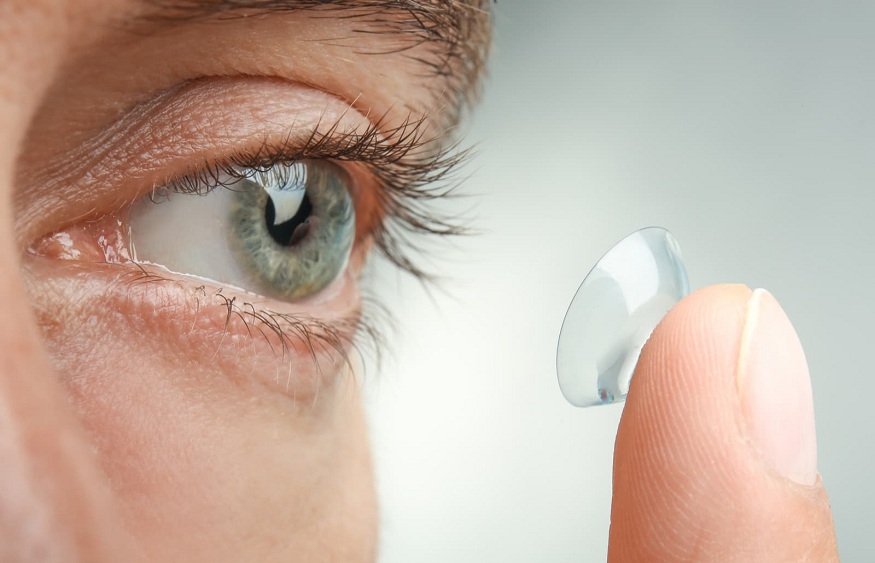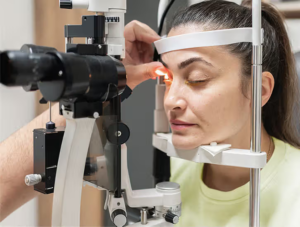
If you would rather wear contact lenses instead of glasses for enhanced vision, there are many options available.
Both rigid and soft contact lenses have advantages and disadvantages. It may depend on your vision requirements, lifestyle, and personal preferences as to which option is best for you.
If you’re contemplating hard contact lenses, continue reading to learn about their benefits and drawbacks and how to use them safely.
What exactly are hard contact lenses?
Rigid gas-permeable (RGP) lenses are the most frequently prescribed form of hard contact lens. This is because they are more pleasant and safer to wear than conventional polymethyl methacrylate (PMMA) lenses and earlier types of hard lenses. Today, PMMA lenses are rarely prescribed.
RGP lenses are typically fabricated from a flexible plastic material that contains silicone. This lightweight material enables oxygen to reach the cornea directly through the lens.
Your cornea is the outermost, transparent membrane of your eye. Your cornea refracts light and functions as the outermost lens of your eye. When the cornea does not receive sufficient oxygen, it can enlarge. This results in vision impairments and other eye disorders.
PMMA lenses prevent oxygen from passing through the lens. Therefore, the only way for oxygen to reach the cornea was for tears to flow under the lens with each blink.
PMMA lenses were designed to be relatively small to enable tears to pass under the lens. In addition, there had to be a space between the cornea and the lens. Unfortunately, this made PMMA lenses uncomfortable to wear and easier to dislodge, particularly when participating in sports.
Because RGP lenses allow oxygen to travel through them, they are larger and cover more of the eye than PMMA lenses.
What sorts of vision problems can hard contact lenses correct?
These lenses are used to correct refractive errors, which are prevalent vision issues.
Refractive errors occur when the shape of the eye inhibits light from correctly focusing on the retina. In the rear of the eye is a layer of light-sensitive tissue called the retina.
RGP hard contact lenses can correct several forms of refractive errors, including:
- Myopia
- Farsightedness (hyperopia)
- Astigmatism
- Presbyopia
The majority of these conditions are also treatable with flexible contact lenses.
What are the benefits of wearing rigid contact lenses?
RGP rigid contact lenses have several advantages over soft contact lenses:
- Clear vision.
- Deposit resistance.
- Less expensive.
- A better option for astigmatism.
What disadvantages do rigid contact lenses present?
RGP rigid contact lenses have disadvantages as well. Here are some frequent issues with these lenses.
- Uncomfortable adapting phase.
- Consistent use is crucial for convenience.
- They are more mobile.
- Require daily cleansing.








